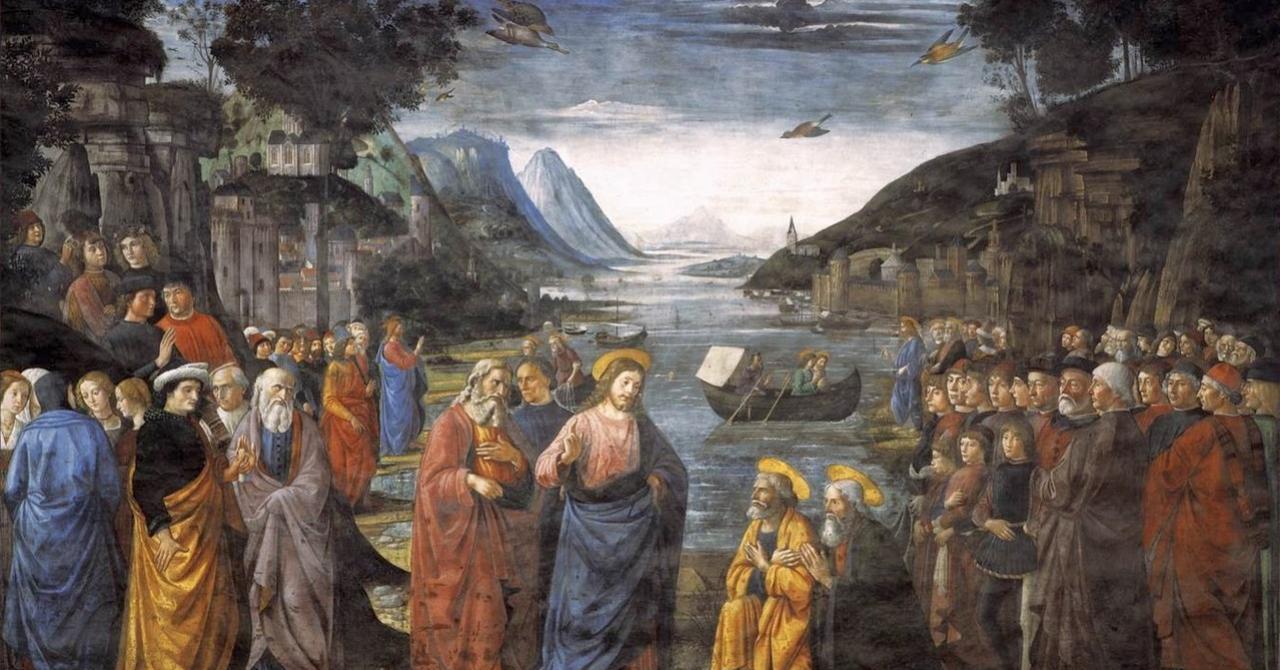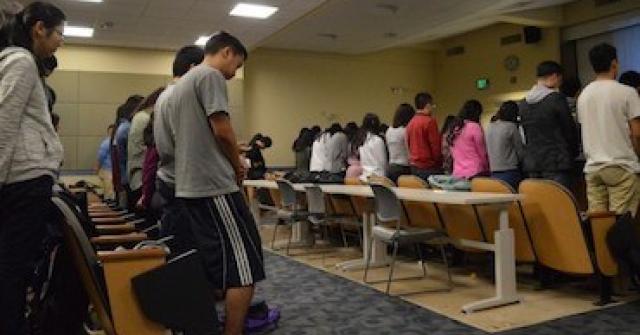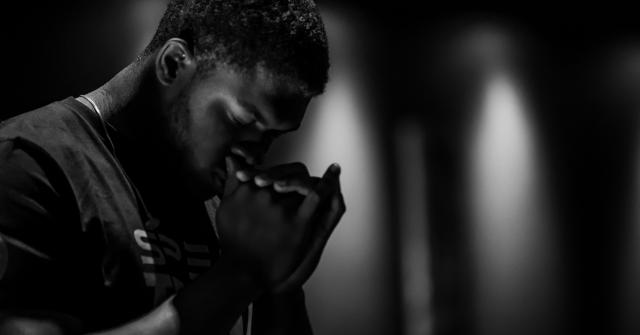
Making Disciples
Therefore, go and make disciples of all nations, baptizing them in the name of the Father and of the Son and of the Holy Spirit, and teaching them to obey everything I have commanded you. And surely I am with you always, to the very end of the age."
Jesus brought up the “Great Commission” six times, in different contexts, all of them during the 40 days between His resurrection and ascension.
Those were His last 40 days on earth, His last opportunity with His disciples down here. He could have taught on any subject: love, worship, or His kingdom. Actually, talking about the kingdom at that point may have made the most sense. His disciples would have seen Him as a King after that. The disciples even brought that subject to the table: "Lord, are you at this time going to restore the kingdom to Israel?" (Acts 1:6), but Jesus rejected it and came back to His teaching priority, saying:
But you will receive power when the Holy Spirit comes on you; and you will be my witnesses in Jerusalem, and in all Judea and Samaria, and to the ends of the earth.
Jesus was very intentional on teaching about the Great Commission. The resurrected Savior talked about other subjects, but He only taught about mission (Luke 24:27, John 20:21 + Luke 24:44-49, John 20:26-29 + Mark 16:14-15, John 21:15-19 according to John 10:16, Matt 28:18-20, Acts 1:6-8).
What draws my attention is that, by intentionally focusing on mission, Jesus clearly sets His priority, saying that it also has to be our priority: “make disciples of all nations.” It is easy to find books and articles about discipleship; the hard part is to do it… Why?
Beginning at the Beginning
You can’t be a disciple if you are not a believer.
We know that faith comes from hearing the Gospel (Rom 10.17) and that preaching the Gospel is a high priority for us, but are you sharing it? Let me put this question in another way: in light of your priorities today, if there were only you and one other person on earth, how long would you take to share the Gospel?
I come from a non-Christian family. I was born and raised in one of the loveliest tropical cities of Brazil, with beautiful flowery beaches and full of evangelical churches. The first time I heard the Gospel in my life was at the age of 17. I was deeply touched by the message, but I didn’t surrender my life to Jesus. Some months after that, I was invited to a camp. It was easy to convince me to go because the person inviting me mentioned sports and girls. It was the Word of Life Bible Camp in Brazil, where I heard the Gospel for the second time and gave my life to Jesus.
From then to today, exactly 40 year later, I was only evangelized once, and that happened when I was 24, back in 1985! Since then, I have never had a chance to hear the Gospel from anyone outside of a church. I am glad I got saved in that camp, otherwise I would be in trouble today and in big trouble in the future.

I have to ask why God’s people are not freely and easily sharing the most important message they hear in their entire life. Why don’t we preach the Gospel, knowing that Jesus has set it as a priority for us?
Part of the answer is that we don’t know the difference between making a disciple and making a believer. God has never commanded us to make believers; it is His task and only He is able to touch hearts, truly convince minds, and save souls. It is not our job!
Jesus said, “For my yoke is easy and my burden is light” (Matt 10:30). Saving people is not an easy or light task; actually, it is a heavy and tough one, one that only Jesus can carry! We don’t have the power or the call to make believers. Life or death is not up to us. We have been burdened by a false assumption, which drains our energy and eventually paralyses our actions, because it is so heavy. The Lord has commanded us to make disciples, not to make believers.
When I deeply understand that I don’t have the responsibility for saving people, I find myself free to preach the Gospel for Jesus’ glory and His glory alone, and it is an easy and light burden to carry. Talking about the beauty of Jesus, His love and grace, with no responsibility to change hearts is not heavy.
Remember this:
The person without the Spirit does not accept the things that come from the Spirit of God but considers them foolishness, and cannot understand them because they are discerned only through the Spirit.
We don’t have to change minds; we have to share the Gospel. Jesus will do what is impossible for us to do.
A Few Words for Disciples
“Preach the word; be prepared in season and out of season; correct, rebuke and encourage—with great patience and careful instruction.” (2 Tim 4:2)
In Season and Out of Season
Paul urges his disciples to share the Gospel, to talk about the presence that is now surrounding his life and filling his soul with joy and hope on a daily basis. The point here is that Timothy is not supposed to preach when it feels convenient for him, or productive. Sharing the Gospel is not connected to our perspective, but it has to be done when it is season and when it is not season.
Why is there is no proper time to share the Gospel? Because we never know when God is going to make a believer! Paul is not burdening Timothy with a heavy weight to carry, but reminding him that the same message, once used by God to touch and change his perspective and his entire life altogether, should be told to others. Receive and give—simple.
Paul didn’t know that his letter to that particular disciple would travel through time and space, being read by billions of people in many parts of the world. He only knew that teaching it was part of his discipleship with any of his disciples, true for any disciple of Jesus Christ, including you and me.
Correct, Rebuke and Encourage
(with great patience and careful instruction)
Now the process becomes even more personal. We are talking about correcting and rebuking people, and we don’t do it to everyone. (Actually, some people do it to everyone, but we don’t like them…)
There are at least two ingredients here that I have been using in my life for many years: a deep and long relationship, and intentionality.
I have intentionally discipled people since I was 19 and haven’t stopped since then. I certainly had to choose some people wisely so that my time with others was effective.
And the things you have heard me say in the presence of many witnesses entrust to reliable people who will also be qualified to teach others.
Prayer is needed to find reliable people before making a commitment to discipling someone. We want to spend time with the right people and limit the time we invest with people that Jesus didn’t bring our way. A lesson I learned early was that distraction is a possibility. Not every relationship is a discipling relationship. I know great Christians who had their time and energy stolen by people who didn’t want to follow Jesus, for years! What it meant was that the ones they were called to disciple didn’t get their time. You can’t expand time. Use it properly on discipleship—be wise.
The second thing I learned, and I have been practicing, is that discipleship is helping people on their way to be more Christlike every day. I am a model, I should be a model, but I am not Christ. I always pray and hope that people I disciple will grow in intimacy with God in a way that they might be a better model of Jesus than I am. I heard that we can’t take someone to a higher level than we are at… yes and no. If you teach them the path of the Cross and they find themselves there, there is a possibility that some of them will be more Christlike than you are. And you will be rejoicing for that disciple and will follow his/her faith, while learning from his/her attitude. At this point we must be cautious of our own pride.

The third thing is what not to say in the discipleship process. Almost everyone has something good to say: I learn from children, from non-believers, with clever people with all sort of degrees, and so many times I learn from the jungle people I work with. Saying good things is not the problem. The problem is that saying something good is not always the best. Often, I need to ask this question before speaking: “What can I say that will encourage this disciple to be more Christlike in this particular situation?” If you don’t have a good answer for that question, just don’t say anything, at least at that point… This leads us to the fourth thing I learned about discipleship.
We need to take our time. We don’t have to have all the answers for the problems of life. Just because I’ve been discipling someone does not mean that I have all the answers. Teaching “with great patience and careful instruction” takes time.
Discipleship is not about the best model or program, or about our ability as a teacher, but about asking good questions that help others find their own answers for difficult problems. It’s about helping them activate the tools for life that God has given them but, for some reason, they are not using at that point.
Discipling is all about sharing life and journeying with others, to see them flourishing in the Lord, not being dependent on you for their decisions. Not long ago, I said to a friend who is a pastor, “From now on, I don’t want you calling me when you have a disagreement with your wife. You are going to confuse her, because what I say is not your own way to deal with life. You have enough. Seek the Lord and only call me if both of you agree on that.” They are going better than ever…
Discipleship is all about the relationship between the disciple and Jesus Christ.







